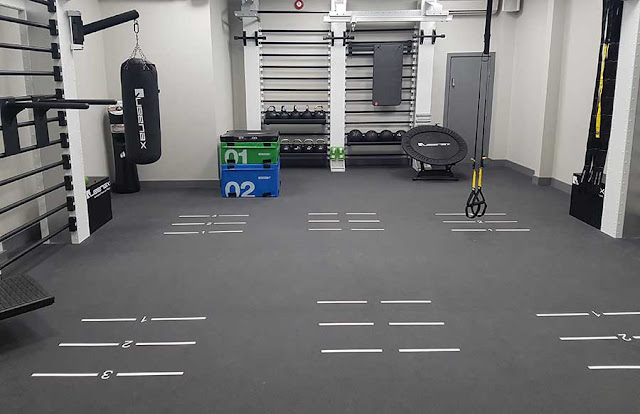Garage Flooring: Practical Choices for Durable and Functional Spaces
Choosing the right garage flooring matters more than you might think. Your garage is more than a place to park your car. It can be a workshop, storage area, or even a hobby space. The flooring you select affects durability, safety, maintenance, and overall use.
Here’s a detailed look at garage flooring — its advantages, common uses, maintenance tips, and why it suits various environments.
Advantages of Garage Flooring
Durability
Garage floors face heavy use and exposure to oils, chemicals, and moisture. Materials designed for Garage Flooring resist wear and tear better than basic concrete. This means fewer cracks, chips, or stains over time.

Safety
Garage flooring materials can offer slip resistance. This helps prevent accidents when floors get wet or oily. Some options also reduce fatigue if you stand or work in the garage for long periods.
Cleanliness
Garage floors can be tough to clean, especially with dirt, grease, and spills. Flooring options like Vinyl Flooring and Rubber Flooring provide smooth surfaces that resist stains and are easy to wipe down.
Comfort and Insulation
Concrete floors are hard and cold. Some garage flooring options offer cushioning and better insulation, making the space more comfortable year-round.
Common Garage Flooring Types and Their Uses
Laminate Flooring
Where it works:
Ideal for garages used partly as living or office spaces. It offers a warm, polished look similar to hardwood but is more affordable.
Why choose it:
Easy to install and clean. It resists scratches and stains fairly well, but may not hold up under heavy moisture or impact.
Consideration:
Make sure to select SPC Laminate Flooring, a subtype built with stone-plastic composite for extra water resistance and durability. This makes it better suited for garage environments than regular laminate.
SPC Laminate Flooring
Where it works:
Perfect for garages needing tough, water-resistant flooring. It can handle spills and moisture better than traditional laminate.
Why choose it:
Offers rigid core construction that won’t warp or swell. It stands up well to heavy use and weight from vehicles or equipment.
Example:
If your garage doubles as a gym or workshop, SPC Laminate Flooring can provide both durability and a refined appearance.
Vinyl Flooring
Where it works:
A common choice for garages because of water resistance and affordability. It suits garages used for storage, parking, or light workshops.
Why choose it:
Resists stains, moisture, and most chemicals. It also offers a variety of colors and patterns, giving you design flexibility.
Maintenance:
Simple cleaning with mild soap and water keeps it looking good. Avoid abrasive cleaners that might damage the surface.
Example:
A vinyl floor can brighten up an older garage and make cleaning oil spills easier.
Rubber Flooring
Where it works:
Great for garages used as workout areas, playrooms, or spaces where impact absorption matters.
Why choose it:
Provides cushioning, reducing strain on feet and joints. It is highly slip-resistant, even when wet.
Durability:
Rubber floors can handle heavy loads and resist damage from dropped tools or weights.
Maintenance:
Requires sweeping and occasional mopping. Rubber Flooring can last for years with minimal upkeep.
Maintenance Tips for Garage Flooring
Regular Cleaning
Sweep or vacuum dirt and debris often to prevent scratches. Mop with mild detergent when needed.
Protect from Chemicals
Avoid letting oils, gasoline, or harsh chemicals sit on the floor. Clean spills promptly.
Use Floor Mats
Place mats near entry points or work areas to reduce dirt and wear.
Check for Damage
Inspect flooring regularly for cracks, chips, or loose tiles. Repair quickly to avoid bigger issues.
Avoid Heavy Dragging
Lift heavy objects instead of dragging them to protect the floor surface.
Why Garage Flooring Works for Various Environments
Residential Garages
Garage flooring helps maintain home value and enhances usability. It creates a clean, safe space for vehicles, tools, or hobbies.
Commercial Spaces
Durable flooring supports constant traffic and equipment use. Materials like Rubber Flooring improve safety in busy garages.
Workshops and Studios
Floors that absorb sound and impact, like rubber or SPC Laminate Flooring, improve comfort and function.
Climate Considerations
Moisture-resistant floors such as Vinyl Flooring and SPC Laminate Flooring perform well in humid or cold environments.
What Should You Consider When Choosing Garage Flooring?
How will you use the space?
How much weight or traffic will the floor bear?
Do you need water or chemical resistance?
How much time do you want to spend on maintenance?
What look and feel do you want?
Answering these will guide you to the best flooring choice for your garage.
Garage flooring transforms your space from ordinary to practical and comfortable. Choosing the right type gives you long-lasting value and easier upkeep. Whether you pick Laminate Flooring, SPC Laminate Flooring, Vinyl Flooring, or Rubber Flooring, focus on what fits your daily needs.



Comments
Post a Comment